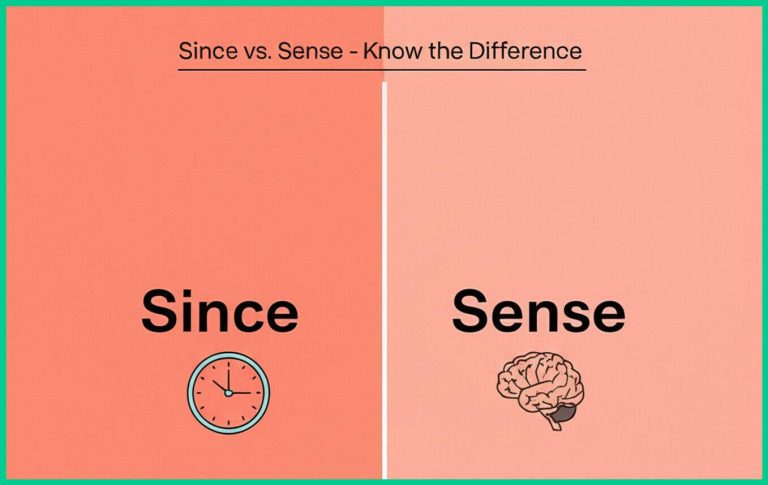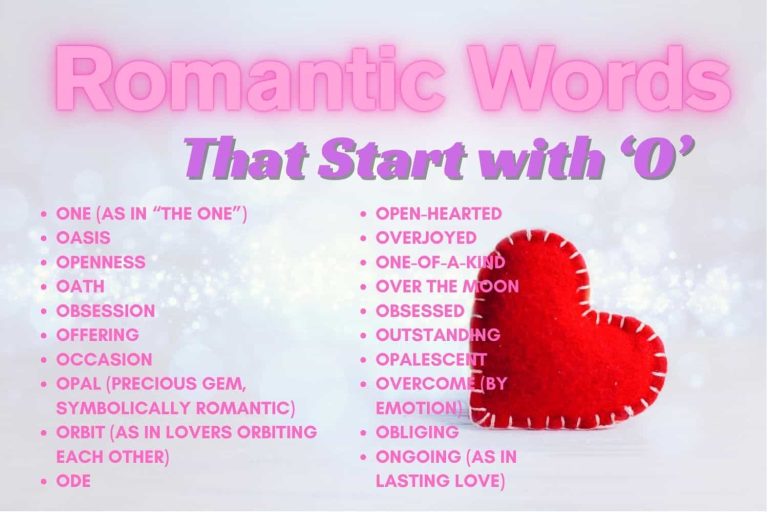50+ Idioms for Sleep: Meanings and Examples
Sleep is a universal experience, but the way we talk about it can be surprisingly creative — especially through idioms. Idioms for sleep add flavor and personality to our conversations, allowing us to describe everything from dozing off unexpectedly to enjoying a long, restful night.
Instead of simply saying “I went to bed,” you might say “I hit the sack.” Rather than “He was very tired,” you could say “He was ready to crash.” These expressions make our language more colorful, relatable, and fun.
Whether you’re writing creatively, improving your English skills, or just love learning new phrases, sleep-related idioms are a great way to enhance your vocabulary. They’re commonly used in everyday conversation, films, and books — so understanding them can also help you sound more fluent and natural.
By the end of this article, you’ll not only recognize these idioms but also understand how to use them effectively in various contexts.
Definition of Idioms for Sleep
An idiom is a phrase or expression whose meaning cannot be understood from the ordinary meanings of the words it contains. Instead, an idiom has a figurative meaning that is known through common usage.
Idioms related to sleep are expressions that use sleep-related terms to convey various states of being, feelings, or situations metaphorically.
These idioms often draw on the universal experience of sleep to describe things like exhaustion, alertness, inattention, or even death. They are a vibrant part of the English language, adding depth and color to communication.
Recognizing and understanding these idioms is essential for fluent English comprehension and effective communication.
Classification of Sleep Idioms
Sleep idioms can be classified based on the emotion or state they describe. Some common classifications include idioms that express exhaustion, peacefulness, inattentiveness, or even euphemisms for death.
Understanding these classifications can help you choose the right idiom to use in a specific context.
Function of Sleep Idioms
The primary function of sleep idioms is to add color and expressiveness to language. They allow speakers to convey complex ideas or emotions in a concise and relatable way.
For example, instead of saying “I am very tired,” you can say “I’m dead on my feet,” which is more vivid and impactful.
Contexts for Using Sleep Idioms
Sleep idioms are used in a variety of contexts, from casual conversations to formal writing. However, it’s important to consider the audience and the situation when using idioms.
Some idioms are more appropriate for informal settings, while others can be used in more formal contexts. Understanding the nuances of each idiom will help you use them effectively.
Examples of Idioms for Sleep
Sleep idioms, like all idioms, do not follow standard grammatical rules when interpreted literally. Their meaning comes from a combination of the words used and their cultural context.
Here are some examples of sleep idioms, organized by category, to help you understand their meanings and how to use them in different contexts.
Idioms Expressing Exhaustion
These idioms describe a state of extreme tiredness or fatigue. They often use vivid imagery to convey the feeling of being completely drained.
| Idiom | Definition | Example Sentence |
|---|---|---|
| Dead tired | Extremely tired; exhausted. | After working a double shift, I was dead tired and just wanted to go to bed. |
| Dead on one’s feet | Extremely tired and barely able to stand. | The nurses were dead on their feet after the long emergency. |
| Knackered | (British English) Extremely tired. | I’m absolutely knackered after that hike. |
| Wiped out | Completely exhausted. | The marathon runner was wiped out after the race. |
| Burned out | Exhausted from overwork or stress. | She was burned out after years of working long hours. |
| Running on fumes | Continuing to function despite being extremely tired or low on energy. | I’m running on fumes today; I didn’t get much sleep last night. |
| Dog-tired | Extremely tired. | After playing with the kids all day, I was dog-tired. |
| Beat | Very tired. | I am so beat after that workout! |
| Shattered | Extremely tired. | I’m shattered, I could sleep for a week. |
| On one’s last legs | Near the end of one’s endurance or energy. | After taking care of the kids all week, she was on her last legs. |
| Ready to drop | Extremely tired and about to collapse. | I’m so ready to drop after that long flight. |
| Out on one’s feet | Extremely tired and unable to continue. | The boxer was out on his feet by the final round. |
| Dragging one’s feet | Moving slowly due to tiredness or reluctance. | He was dragging his feet through the last mile of the race. |
| Feeling the weight of the world | Feeling overwhelmed and exhausted by responsibilities. | She was feeling the weight of the world after dealing with so many problems. |
| Gone to the dogs | (Figuratively) Deteriorated due to neglect, often leading to exhaustion. | Since the factory closed, the town has gone to the dogs. |
| At the end of one’s rope | Having reached the limit of one’s endurance or patience. | After dealing with the constant noise, I was at the end of my rope. |
| Fagged out | Exhausted (often used in British English). | I’m completely fagged out after helping my friend move furniture. |
| Bushed | Tired, exhausted. | She was bushed after the long day of shopping. |
| Run ragged | Made extremely tired by being kept very busy. | The kids ran me ragged all day. |
| All in | Completely exhausted. | I’m all in after that game of basketball. |
| Spent | Having no energy left; exhausted. | He was completely spent after finishing the marathon. |
| Fried | Exhausted, worn out. | I’m completely fried after that project. |
Examples of Idioms Expressing Peacefulness or Rest
These idioms describe a state of tranquility, relaxation, or deep sleep. They often evoke a sense of calm and serenity.
| Idiom | Definition | Example Sentence |
|---|---|---|
| Sleep like a log | To sleep very soundly. | I slept like a log last night and woke up feeling refreshed. |
| Sleep like a baby | To sleep very peacefully and soundly. | After a long day, I slept like a baby. |
| Out like a light | To fall asleep very quickly and deeply. | As soon as my head hit the pillow, I was out like a light. |
| Drift off to sleep | To gradually fall asleep. | I drifted off to sleep while reading a book. |
| Be in the land of nod | To be asleep. | The baby is in the land of nod. |
| Sawing logs | Snoring loudly. | My roommate was sawing logs all night. |
| Rest one’s eyes | To take a short nap. | I’m just going to rest my eyes for a few minutes. |
| Turn in | Go to bed. | I think I’ll turn in early tonight. |
| Hit the hay | Go to bed. | It’s late, let’s hit the hay. |
| Hit the sack | Go to bed. | I am going to hit the sack early tonight. |
| Catch some Z’s | Get some sleep. | I need to catch some Z’s before the big game. |
| Nap | A short sleep, usually during the day. | I’m going to take a nap for 20 minutes. |
| Doze off | Fall asleep lightly. | I dozed off during the movie. |
| Under the covers | In bed, usually asleep or resting. | The kids are all under the covers now. |
| In dreamland | Asleep and dreaming. | The toddler is in dreamland. |
| Slumber | To sleep. | The baby is in a deep slumber. |
| Have forty winks | To take a short nap. | I’m going to have forty winks after lunch. |
| Sleep on it | Think about something before making a decision. | Sleep on it and tell me your answer tomorrow. |
| Let sleeping dogs lie | Avoid stirring up trouble or revisiting a sensitive issue. | It’s best to let sleeping dogs lie and not bring up the argument again. |
| Sleep tight | Sleep well. | Goodnight, sleep tight! |
| Tuck in | To make someone comfortable in bed. | I tucked the children in before going downstairs. |
| Rest easy | To be at peace in sleep. | Rest easy, my friend. |
Idioms Expressing Inattentiveness or Lack of Focus
These idioms describe a state of being distracted, unaware, or not paying attention, often metaphorically linked to being asleep or dreaming.
| Idiom | Definition | Example Sentence |
|---|---|---|
| Asleep at the switch | Not paying attention or being alert when one should be. | The security guard was asleep at the switch and didn’t see the intruder. |
| Caught napping | Caught being inattentive or unprepared. | The politician was caught napping when asked about the new policy. |
| Daydreaming | Being lost in thought, often about pleasant things. | The student was daydreaming instead of paying attention in class. |
| Have one’s head in the clouds | To be out of touch with reality; to be impractical or unrealistic. | She has her head in the clouds if she thinks she can get that job without any experience. |
| In a fog | Confused or disoriented. | I’ve been in a fog all day because I didn’t get enough sleep. |
| Out to lunch | Not paying attention; not very bright. | He seems a little out to lunch today. |
| Staring into space | Looking blankly ahead without focusing on anything. | The employee was staring into space during the meeting. |
| Nod off | Fall asleep briefly and unintentionally. | I tend to nod off during lectures. |
| Zone out | To stop paying attention. | I zoned out during the meeting. |
| Brain fart | A temporary mental lapse or failure to recall something. | I had a brain fart and forgot her name. |
| Blank out | To forget something suddenly. | I blanked out during the exam. |
| Off in la-la land | Not paying attention to what is happening around you. | He’s off in la-la land again. |
| Not with it | Not fully alert or aware. | I’m not with it today, I didn’t get enough sleep. |
| Lost in thought | Deeply engrossed in one’s own thoughts. | She was lost in thought and didn’t hear me come in. |
| Preoccupied | Engrossed in thought; distracted. | He seemed preoccupied during the conversation. |
| A million miles away | Lost in thought and unaware of one’s surroundings. | She looked like she was a million miles away. |
| Not all there | Not fully mentally present or alert. | He’s not all there today. |
| In another world | Lost in one’s own thoughts and not paying attention. | She seems to be in another world today. |
| Faraway look | An expression suggesting someone is lost in thought. | He had a faraway look in his eyes. |
| Out of it | Not fully alert or aware. | I’m feeling out of it today. |
Examples of Idioms as Euphemisms for Death
These idioms use sleep-related terms to refer to death in a gentler or more indirect way. They are often used to soften the blow of bad news or to avoid being too direct.
| Idiom | Definition | Example Sentence |
|---|---|---|
| Eternal rest | Death; a state of permanent peace and rest. | May she find eternal rest. |
| Go to one’s final sleep | To die. | He has gone to his final sleep after a long illness. |
| Pass away | To die (a euphemism). | My grandfather passed away peacefully in his sleep. |
| Cross over to the other side | To die; to enter the afterlife. | She has crossed over to the other side after a long life. |
| Rest in peace (RIP) | A common phrase used to wish peace to someone who has died. | Rest in peace, dear friend. |
| Give up the ghost | To die; to stop functioning. | After years of service, the old car finally gave up the ghost. |
| Meet one’s maker | To die; to meet God. | He has gone to meet his maker. |
| Join the choir invisible | To die (humorous). | He has joined the choir invisible. |
| Go to a better place | To die and go to heaven. | Grandma has gone to a better place. |
| Be called home | To die and be welcomed into heaven. | She has been called home after a life of service. |
Usage Rules for Sleep Idioms
Using idioms correctly requires understanding their specific meanings and contexts. Here are some rules to follow when using sleep idioms:
- Understand the Meaning: Make sure you know the exact meaning of the idiom before using it. Don’t rely on a literal interpretation of the words.
- Consider the Context: Use idioms that are appropriate for the situation and your audience. Some idioms are more formal than others.
- Pay Attention to Grammar: Use the idiom in a grammatically correct sentence. The idiom itself doesn’t change, but it must fit into the sentence properly.
- Avoid Overuse: Using too many idioms can make your speech sound unnatural or forced. Use them sparingly and strategically.
- Be Aware of Regional Differences: Some idioms are more common in certain regions or countries. Be aware of these differences when speaking to people from different backgrounds.
Exceptions and Special Cases
Some sleep idioms have variations in their usage or meaning depending on the context. For example, “sleep on it” can sometimes mean to delay making a decision, while in other contexts, it simply means to think about something overnight.
Additionally, some idioms may have multiple meanings or be used in different ways depending on the region. It’s important to be aware of these variations and to choose the meaning that is most appropriate for the situation.
Common Mistakes with Sleep Idioms
Here are some common mistakes that English learners make when using sleep idioms, along with correct examples:
| Incorrect | Correct | Explanation |
|---|---|---|
| I slept as a wood. | I slept like a log. | “Sleep like a log” is the correct idiom for sleeping soundly. |
| She is out as a light. | She is out like a light. | The correct idiom is “out like a light,” not “out as a light.” |
| He is in the ground of nod. | He is in the land of nod. | The correct idiom is “land of nod,” not “ground of nod.” |
| I am very dead. | I am dead tired. | “Dead tired” is the correct idiom for being extremely tired. |
| Let wake dogs lie. | Let sleeping dogs lie. | The correct idiom is “let sleeping dogs lie,” not “let wake dogs lie.” |
| I will sleep it. | I will sleep on it. | The correct idiom is “sleep on it,” not “sleep it.” |
| She hit the grass. | She hit the hay. | “Hay” is the correct word to use in the idiom. |
| I need to take my forty winks. | I need to have forty winks. | Use “have” instead of “take.” |
Practice Exercises
Test your understanding of sleep idioms with these practice exercises. Choose the correct idiom to complete each sentence.
Exercise 1: Fill in the Blanks
Choose the correct idiom from the list to complete each sentence.
Idiom List: dead tired, sleep like a log, asleep at the switch, hit the hay, running on fumes, let sleeping dogs lie, out like a light, catch some Z’s, forty winks, sawing logs
| Question | Answer |
|---|---|
| 1. After working all day, I was __________ and just wanted to go to bed. | dead tired |
| 2. I __________ last night and woke up feeling refreshed. | slept like a log |
| 3. The security guard was __________ and didn’t see the intruder. | asleep at the switch |
| 4. It’s late, I think I’m going to __________. | hit the hay |
| 5. I’m __________ today; I didn’t get much sleep last night. | running on fumes |
| 6. It’s best to __________ and not bring up the argument again. | let sleeping dogs lie |
| 7. As soon as my head hit the pillow, I was __________. | out like a light |
| 8. I need to __________ before the big game tomorrow. | catch some Z’s |
| 9. I’m just going to have __________ after lunch. | forty winks |
| 10. My roommate was __________ all night, keeping me awake. | sawing logs |
Exercise 2: Multiple Choice
Choose the best definition for each idiom.
| Question | Options | Answer |
|---|---|---|
| 1. What does “burn the midnight oil” mean? | a) To sleep soundly, b) To work late into the night, c) To take a nap, d) To dream | b) To work late into the night |
| 2. What does “be in the land of nod” mean? | a) To be awake, b) To be confused, c) To be asleep, d) To be angry | c) To be asleep |
| 3. What does “sleep on it” mean? | a) To ignore something, b) To think about something before making a decision, c) To forget something, d) To dream about something | b) To think about something before making a decision |
| 4. What does “dead on one’s feet” mean? | a) To be healthy, b) To be extremely tired, c) To be angry, d) To be excited | b) To be extremely tired |
| 5. What does “catch some Z’s” mean? | a) To exercise, b) To eat, c) To get some sleep, d) To work | c) To get some sleep |
| 6. What does “nod off” mean? | a) To agree, b) To disagree, c) To fall asleep briefly, d) To wake up | c) To fall asleep briefly |
| 7. What does “all in” mean? | a) Completely exhausted, b) Very happy, c) Very sad, d) Very excited | a) Completely exhausted |
| 8. What does “rest easy” mean? | a) To be worried, b) To be at peace in sleep, c) To be angry, d) To be excited | b) To be at peace in sleep |
| 9. What does “doze off” mean? | a) Fall asleep lightly, b) Wake up quickly, c) Exercise, d) Eat | a) Fall asleep lightly |
| 10. What does “out to lunch” mean? | a) Eating lunch, b) Not paying attention, c) Working hard, d) Sleeping soundly | b) Not paying attention |
Exercise 3: Sentence Completion
Complete the following sentences using appropriate sleep idioms.
| Question | Answer |
|---|---|
| 1. After the long journey, she was so tired that she __________. | …was out like a light. |
| 2. The manager was __________ and missed the critical error in the report. | …asleep at the switch. |
| 3. I had to __________ because I was feeling exhausted. | …catch some Z’s. |
| 4. After the stressful week, all I wanted to do was __________. | …sleep like a log. |
| 5. I am __________ after working two jobs today. | …dead tired. |
| 6. If you’re not sure about the decision, __________. | …sleep on it. |
| 7. I was so tired I started to __________ during the lecture. | …nod off. |
| 8. It’s getting late, I think I’ll __________. | …hit the hay. |
| 9. She was __________ in the meeting, not paying attention at all. | …out to lunch. |
| 10. I just need to __________ for a few minutes to recharge. | …rest my eyes. |
FAQ: Frequently Asked Questions
Here are some frequently asked questions about sleep idioms:
What is the difference between an idiom and a literal expression?
An idiom is a phrase whose meaning is different from the literal meanings of the individual words. A literal expression means exactly what it says. For example, “sleep like a log” is an idiom meaning to sleep very soundly, while “I went to bed” is a literal expression.
How can I learn new sleep idioms?
Read widely, listen to native speakers, and pay attention to how idioms are used in context. Keep a notebook of new idioms and practice using them in your own speech and writing.
Are sleep idioms common in everyday conversation?
Yes, sleep idioms are very common in everyday conversation. Native speakers use them frequently to add color and expressiveness to their language.
Is it okay to use sleep idioms in formal writing?
It depends on the specific idiom and the context of the writing. Some idioms are more appropriate for informal settings, while others can be used in more formal contexts. When in doubt, it’s best to err on the side of caution and use more direct language.
How do I know which sleep idiom to use in a specific situation?
Consider the meaning you want to convey, the audience you’re speaking to, and the overall tone of the conversation. Choose an idiom that is appropriate for all of these factors.
Can the meaning of a sleep idiom change over time?
Yes, the meaning of an idiom can evolve over time as language and culture change. It’s important to stay up-to-date on the current usage of idioms.
Are sleep idioms the same in all English-speaking countries?
No, some sleep idioms are more common in certain regions or countries. Be aware of these regional differences when speaking to people from different backgrounds.
Why is it important to learn idioms?
Learning idioms is important because they are a common part of the English language. Understanding idioms will help you comprehend native speakers and communicate more effectively.
Conclusion
These expressions add color, depth, and nuance to your communication, allowing you to express yourself more effectively and understand native speakers with greater ease.
By understanding the definitions, structures, and usage rules of these idioms, you can confidently incorporate them into your everyday conversations and writing.
Keep exploring, keep learning, and keep practicing, and you’ll be well on your way to mastering the art of idiomatic English.





